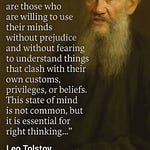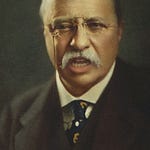Hello, I am Gustave Le Bon, a scholar of psychology and crowd behavior, and today I want to reflect on one of my most quoted observations: "The masses have never thirsted after truth. Whoever can supply them with illusions is easily their master; whoever attempts to destroy their illusions is always their victim." This statement, first articulated in my work, The Crowd: A Study of the Popular Mind, reflects my understanding of human psychology, particularly in collective settings. It is a profound commentary on how crowds function, how they respond to authority, and how illusions often triumph over inconvenient truths. Let us explore how this applied in my time, how it remains relevant today, and what lessons it holds for the information-driven era we now live in. How it applied then: When I wrote these words in the late 19th century, the world was undergoing immense social and political transformation. Mass industrialization, urbanization, and the rise of nation-states created environments where crowds gained unprecedented power. People congregated in public spaces, forming groups that were no longer just passive observers but active participants in shaping political movements, revolutions, and ideologies. But there was a paradox: while crowds held power in numbers, they were often led not by rational thought or pursuit of truth but by emotion, symbolism, and illusion. Charismatic leaders, from revolutionary figures to authoritarian rulers, mastered the art of speaking to the desires, fears, and prejudices of the masses. They provided simple narratives and comforting illusions, even when those illusions diverged from reality. Crowds, overwhelmed by their emotional and collective instincts, were drawn to these leaders, often resisting efforts to reveal inconvenient truths.
Playback speed
×
Share post
Share post at current time
Share from 0:00
0:00
/
0:00
Transcript
The masses have never thirsted after truth. Whoever can supply them with illusions is easily their master; whoever attempts to destroy their illusions is always their victim.
Gustave Le Bon
Dec 27, 2024
Timeless Quotes: A Journey Through Enduring Wisdom (private feed for hase@peachwiz.com)
Timeless Quotes: A Journey Through Enduring Wisdom (private feed for hase@peachwiz.com)
Timeless Quotes: A Journey Through Enduring Wisdom (private feed for hase@peachwiz.com)Listen on
Substack App
Spotify
RSS Feed
Recent Episodes










